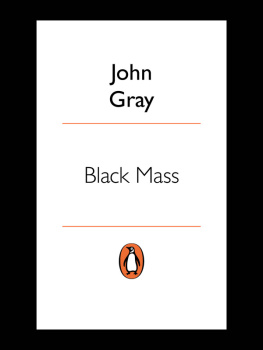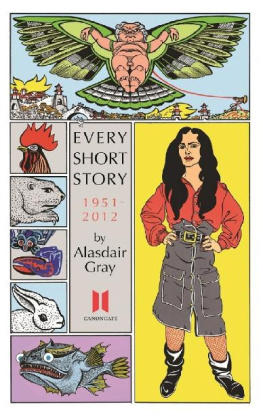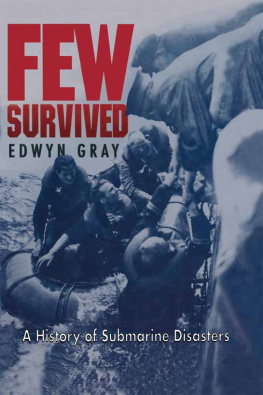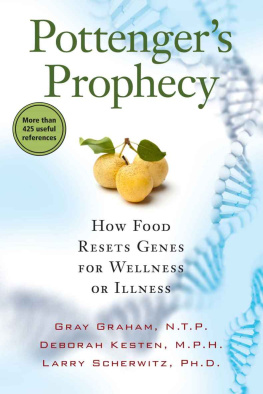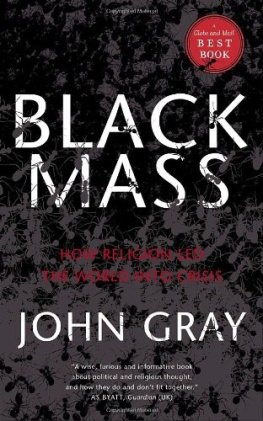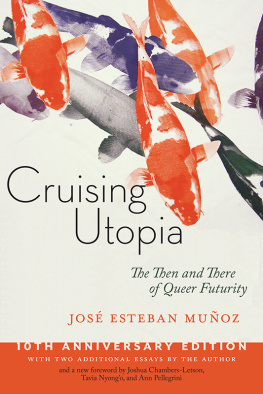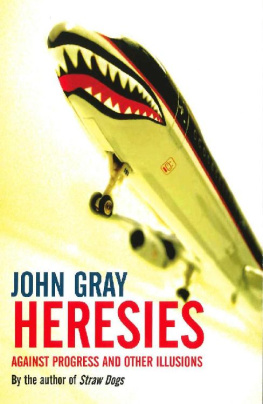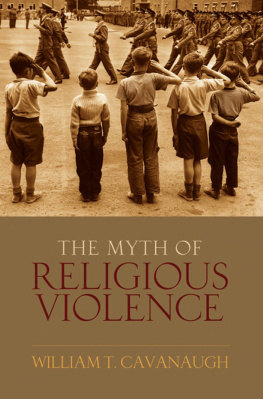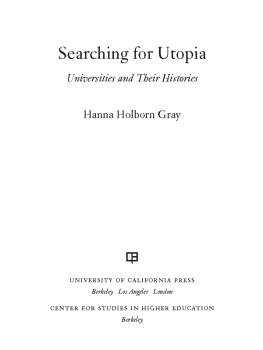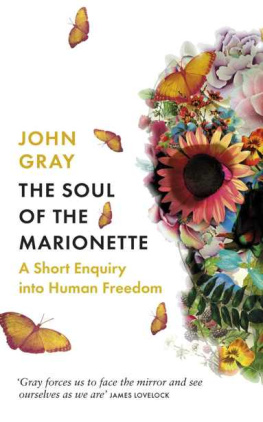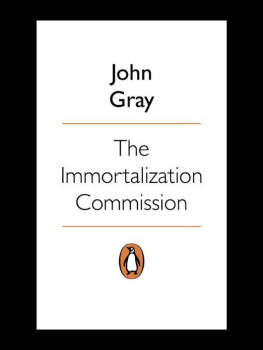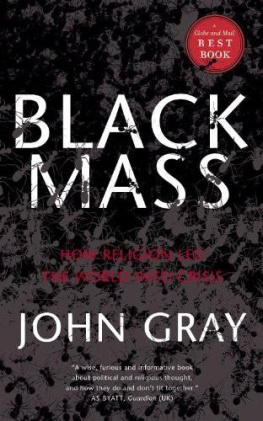PENGUIN BOOKS
Black Mass
A wonderful writer. Gray is always original and always interesting a radical, unpredictable
Andrew Marr
Meticulous and persuasive Gray is a compelling writer, dismembering his targets with surgical irony
Independent
Exhilarating, invigorating one ends Black Mass with anxiety
LiteraryReview
Impossible to categorize Grays is a world-view that causes vertigo when it does not cause outrage. Read John Gray
Brian Appleyard, Sunday Times
A savage attack on politicians and thinkers who think that decisive change for the better is achievable. Gray is widely read, original, eloquent and provoking. [He] raises profound and valid doubts about the conventional plot of modern history
Financial Times
A passionate and powerful polemic A sparkling synthesis of religious history and contemporary political analysis
Spectator
Compulsory reading for all serious thinkers it displays an unparalleled understanding of the modern word. It will provoke much debate. So it should
Scotsman
ABOUT THE AUTHOR
John Gray is most recently the acclaimed author of Straw Dogs: Thoughts on Humans and Other Animals, Al Qaeda and What it Means to be Modern and Heresies: Against Progress and Other Illusions. He is Professor of European Thought at the London School of Economics.
JOHN GRAY
Black Mass
Apocalyptic Religion and the Death of Utopia

PENGUIN BOOKS
PENGUIN BOOKS
Published by the Penguin Group
Penguin Books Ltd, 80 Strand, London WC2R 0RL, England
Penguin Group (USA) Inc., 375 Hudson Street, New York, New York 10014, USA
Penguin Group (Canada), 90 Eglinton Avenue East, Suite 700, Toronto, Ontario, Canada M4P 2Y3 (a division of Pearson Penguin Canada Inc.)
Penguin Ireland, 25 St Stephens Green, Dublin 2, Ireland (a division of Penguin Books Ltd)
Penguin Group (Australia), 250 Camberwell Road, Camberwell, Victoria 3124, Australia (a division of Pearson Australia Group Pty Ltd)
Penguin Books India Pvt Ltd, 11 Community Centre, Panchsheel Park, New Delhi 110 017, India
Penguin Group (NZ), 67 Apollo Drive, Rosedale, North Shore 0632, New Zealand (a division of Pearson New Zealand Ltd)
Penguin Books (South Africa) (Pty) Ltd, 24 Sturdee Avenue, Rosebank, Johannesburg 2196, South Africa
Penguin Books Ltd, Registered Offices: 80 Strand, London, WC2R 0RL, England
www.penguin.com
First published by Allen Lane 2007
Published in Penguin Books 2008
Copyright John Gray, 2007
All rights reserved
The moral right of the author has been asserted
Except in the United States of America, this book is sold subject to the condition that it shall not, by way of trade or otherwise, be lent, re-sold, hired out, or otherwise circulated without the publishers prior consent in any form of binding or cover other than that in which it is published and without a similar condition including this condition being imposed on the subsequent purchaser
ISBN: 978-0-241-95917-6
THE SENATOR : This is an abyss into which it is better not to look.
THE COUNT : My friend, we are not free not to look.
Joseph de Maistre, St Petersburg Dialogues
Black Mass,df. A sacrilegious ritual in which the Christian Mass is performed backwards.
Acknowledgements
Many people have helped me in writing this book. Norman Cohn gave me the immense benefit of his conversation, and I could not have developed the interpretation of modern politics and religion presented here without it. Conversations with Bryan Appleyard, Robert Colls, Michael Lind, Adam Phillips and Paul Schtze have entered into the book in many ways. Simon Winder, my editor at Penguin, has given me invaluable suggestions and encouragement at every stage of the books development. Tracy Bohan of the Wylie Agency UK in London and Eric Chinski at Farrar Straus Giroux in New York, and Nick Garrison, formerly of Doubleday Canada and now head of communications at the environmental company Zero Footprint, have been enormously helpful in giving me their comments. I am extremely grateful to David Rieff for his penetrating thoughts on a late draft. Responsibility for the book remains mine.
My biggest debt is to Mieko, who made the book possible.
John Gray
1. The Death of Utopia
Modern politics is a chapter in the history of religion. The greatest of the revolutionary upheavals that have shaped so much of the history of the past two centuries were episodes in the history of faith moments in the long dissolution of Christianity and the rise of modern political religion. The world in which we find ourselves at the start of the new millennium is littered with the debris of utopian projects, which though they were framed in secular terms that denied the truth of religion were in fact vehicles for religious myths.
Communism and Nazism claimed to be based on science in the case of communism the cod-science of historical materialism, in Nazism the farrago of scientific racism. These claims were fraudulent but the use of pseudo-science did not stop with the collapse of totalitarianism that culminated with the dissolution of the USSR in December 1991. It continued in neo-conservative theories that claimed the world is converging on a single type of government and economic system universal democracy, or a global free market. Despite the fact that it was presented in the trappings of social science, this belief that humanity was on the brink of a new era was only the most recent version of apocalyptic beliefs that go back to the most ancient times.
Jesus and his followers believed they lived in an End-Time when the evils of the world were about to pass away. Sickness and death, famine and hunger, war and oppression would all cease to exist after a world-shaking battle in which the forces of evil would be utterly destroyed. Such was the faith that inspired the first Christians, and though the End-Time was re-interpreted by later Christian thinkers as a metaphor for a spiritual change, visions of Apocalypse have haunted western life ever since those early beginnings.
During the Middle Ages, Europe was shaken by mass movements inspired by the belief that history was about to end and a new world be born. These medieval Christians believed that only God could bring about the new world, but faith in the End-Time did not wither away when Christianity began to decline. On the contrary, as Christianity waned the hope of an imminent End-Time became stronger and more militant. Modern revolutionaries such as the French Jacobins and the Russian Bolsheviks detested traditional religion, but their conviction that the crimes and follies of the past could be left behind in an all-encompassing transformation of human life was a secular reincarnation of early Christian beliefs. These modern revolutionaries were radical exponents of Enlightenment thinking, which aimed to replace religion with a scientific view of the world. Yet the radical Enlightenment belief that there can be a sudden break in history, after which the flaws of human society will be for ever abolished, is a by-product of Christianity.
The Enlightenment ideologies of the past centuries were very largely spilt theology. The history of the past century is not a tale of secular advance, as bien-pensants of Right and Left like to think. The Bolshevik and Nazi seizures of power were faith-based upheavals just as much as the Ayatollah Khomeinis theocratic insurrection in Iran. The very idea of revolution as a transforming event in history is owed to religion. Modern revolutionary movements are a continuation of religion by other means.

